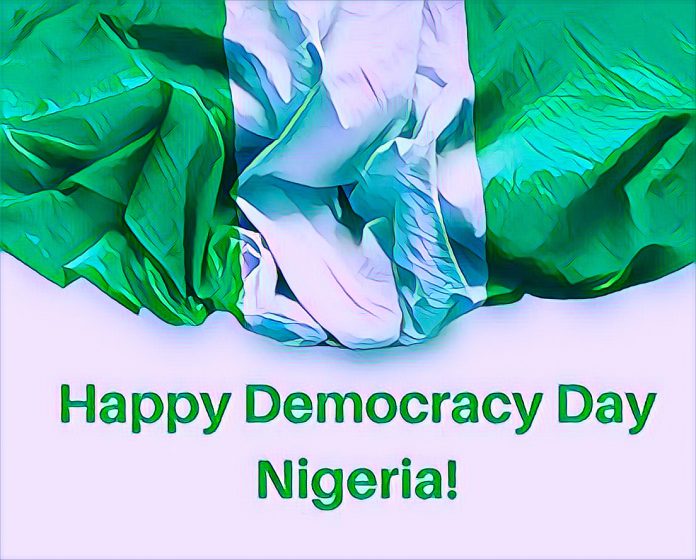Nigeria recently marked 25 years of democracy, a milestone that has been both exhilarating and challenging. This quarter-century journey has seen significant political advancements alongside persistent frustrations, reflecting the complex and dynamic nature of Nigeria’s democratic evolution.
The return to civilian rule in 1999 ended years of military dictatorship, heralding a new era of democratic governance. This transition was met with widespread optimism as Nigerians looked forward to a future characterized by political stability, economic growth, and social development. The establishment of democratic institutions and processes, such as regular elections, a free press, and an active civil society, signaled the country’s commitment to democratic ideals.
However, the path has not been without obstacles. Corruption remains a significant issue, permeating various levels of government and hindering development. Despite efforts by successive administrations to tackle this problem, it continues to undermine public trust in democratic institutions. Transparency International consistently ranks Nigeria low on its Corruption Perceptions Index, highlighting the need for more effective anti-corruption measures.
Elections, while regular, have often been marred by violence, irregularities, and allegations of fraud. The Independent National Electoral Commission (INEC) has faced challenges in ensuring free, fair, and credible elections, though improvements have been noted in recent years. The 2023 general elections, for example, saw the introduction of technology to enhance transparency and reduce electoral malpractices, but issues such as voter suppression and logistical problems still persisted.
Economic challenges also cast a shadow over Nigeria’s democratic journey. Despite being Africa’s largest economy, Nigeria grapples with high unemployment rates, poverty, and inflation. The reliance on oil exports has made the economy vulnerable to global oil price fluctuations, underscoring the need for diversification. Efforts to reform and diversify the economy have met with mixed results, and economic disparities continue to fuel social tensions.
Security remains another pressing concern. The rise of insurgent groups like Boko Haram and the proliferation of banditry, kidnappings, and communal conflicts have posed serious threats to national stability. The government’s response, while proactive, has often been criticized for its effectiveness and respect for human rights. These security challenges have not only disrupted lives but also strained the country’s democratic fabric.
On the brighter side, Nigeria has made notable strides in several areas. The consolidation of democratic practices and institutions is evident. The judiciary has increasingly asserted its independence, ruling on election disputes and upholding the rule of law. Civil society organizations and the media play crucial roles in holding the government accountable and advocating for the rights of citizens.
Moreover, there have been significant social and cultural shifts. The increased political participation of women and youth signals a more inclusive democracy. Initiatives to enhance digital governance and transparency, such as the Treasury Single Account (TSA) and the Integrated Payroll and Personnel Information System (IPPIS), have improved public sector efficiency and reduced leakages.
Looking ahead, the future of Nigerian democracy hinges on addressing these challenges. Strengthening democratic institutions, enhancing economic opportunities, ensuring security, and fostering inclusive governance are crucial for the country’s continued progress. As Nigeria reflects on its 25-year democratic journey, there is a mix of cautious optimism and determined resolve to build a more robust and resilient democracy.
In conclusion, Nigeria’s democratic journey over the past 25 years has been a complex tapestry of triumphs and trials. While significant progress has been made, substantial challenges remain. The collective efforts of the government, civil society, and the citizenry are essential in navigating these challenges and ensuring that democracy delivers on its promises.
Source of this article: businessday.ng



